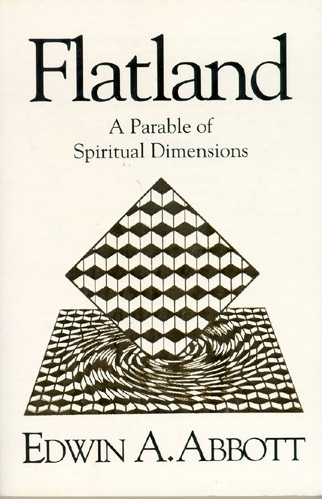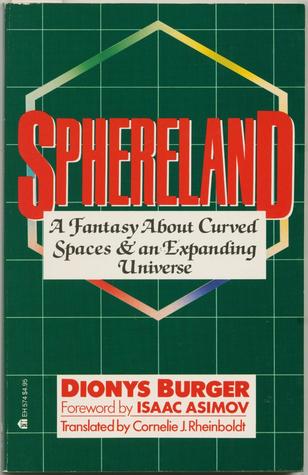|
THE
FIELDS INSTITUTE FOR RESEARCH IN MATHEMATICAL SCIENCES
|
FIELDS
MATHED FORUM MEETING AGENDA
Theme:
Mathematics
in Science Fiction
February
22, 10am-2pm
10am - 11:50am Lillian Smith Library, 239 College
St., Merrill Collection Room
12pm-2pm Fields Institute, 222 College Street, Toronto
|
|
| Meeting
Agenda |
|
|
Morning Program Location:
Lillian Smith Library, 239 College St., Merrill Collection Room
10:00am Introduction to the panellists Karl Schroeder, Suzanne Church,
and Tony Pi.
10:05-10:50am Panel on Mathematics in Science Fiction
Karl Schroeder is a science fiction writer and futurist based
in Toronto. He has published ten SF novels, and you can currently
find the graphic novel of his acclaimed Sun of Suns online at http://virgacomic.com.
A graduate of OCAD University's Strategic Foresight and Innovation
Masters programme, he is Senior Foresight Strategist at international
consultancy Idea Couture.
Constraint is a concept that underlies a number of disciplines,
and it's interesting that it's important both to art and to, say,
physics. Terrence Deacon's recent book Incomplete Nature presents
a grand unified theory linking thermodynamics to information theory
and ultimately consciousness using the concept of constraint. Karl
will show how he uses limitations imposed by nature to find creative
exit points from seemingly insoluble creative problems within his
chosen genre of "hard" science fiction.
Suzanne Church writes Science Fiction, Fantasy, and Horror
because she enjoys them all and hates to play favorites. Her short
fiction has appeared in Clarkesworld, Cicada and On Spec, and in
several anthologies including Urban Green Man. Her collection of
short fiction, "Elements" will be released on April 1,
2014 from EDGE Science Fiction and Fantasy Publishing. After spending
most of the 1990s teaching high school math and computer science,
she switched tracks and focused on fiction writing. Collecting like
terms and taking derivatives will always be a passion, and she loves
to find ways to insert numeracy into the conversation, especially
the occasional math joke. At the event Suzanne will read excerpts
of works by Ted Chiang, Greg Egan, and others.
Tony Pi is a Toronto-based writer with a Ph.D. in Linguistics
from McGill University, specializing in semantics and sociolinguistics.
He works in administration at Innis College, University of Toronto.
He has been nominated in the past for "Best Short-Form Work
in English" for the Prix Aurora Award, and the John W. Campbell
Award for Best New Writer. His works have appeared in Clarkesworld
Magazine, InterGalactic Medicine Show, The Improbable Adventures
of Sherlock Holmes, OnSpec, among others.
10:50am Technology behind "Little Brother" - Jamming
with Bayes Rule.
We will watch a video created to show the technology behind Cory
Doctorow's Little Brother, titled Jamming with Bayes Rule; discussion
of the Paradox of the False Positive by two young fans (https://www.youtube.com/watch?v=U8JzVkvLlA8&feature=youtube_gdata_player)
11:00-11:50am: Q & A with the panel.
11:50am: Announcement of the afternoon mathematics and fiction projects
back at the Fields.
Afternoon program location: Fields Institute
12:00pm Lunch at the Fields Institute (light refreshments provided)
12:50-1:00pm Reports: OAME, OMCA, OCMA, CMESG, CMS, and other.
1:00-1:40pm Peter Taylor (Queen's University): Math and Poetry:
Poems I have used.
Abstract: I will read some of the poems we have used in the Math
and Poetry course at Queen's and talk about why they belong in a
mathematics course and what impact they have on the students.
Biography: Peter Taylor is a professor in the Department of Mathematics
and Statistics at Queen's University, cross-appointed to the Department
of Biology and the Faculty of Education. He is a Queen's graduate
and has a Harvard PhD. His area of research is theoretical evolutionary
ecology, particular the evolution of cooperative behaviour. He is
a 3M Fellow, and is Chair of the Education Committee of the Canadian
Mathematical Society. He has done extensive curriculum writing with
the Ontario Ministry of Education and as preparation for this, he
taught two semesters in high school.
1:40pm Shirley Dalrymple & Dragana Martinovic: A Math
Stories Project
We will watch a short video in which Shirley Dalrymple discusses
a Counting Stories Project (http://www.edu.uwo.ca/mpc/ShirleyDalrymple/),
where students re-write or create a children's story, fairy tale,
nursery rhyme or song so that it includes probability and counting
concepts and principles. The mathematics they introduce in the story
must connect to the context of the story, and provide opportunities
for decision-making on the part of the characters within the story.
The mathematics may be complex but students try to keep the story
simple. The assessment of this assignment focuses on the mathematics
within the story line and the integration of narrative and mathematical
forms in the story.
Dragana Martinovic will bring stories written by the pre-service
teachers in her Intermediate/Senior Mathematics as a Teachable Subject
class: a) probability and counting concepts; b) functions concepts;
c) vectors and analytic geometry; and d) financial mathematics.
2:00pm Adjournment
Back to MathEd Forum Page


